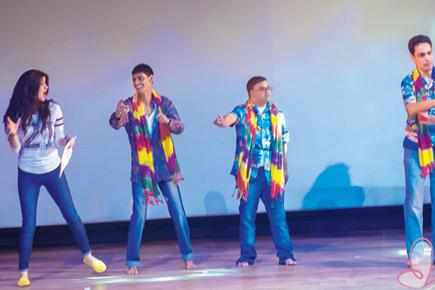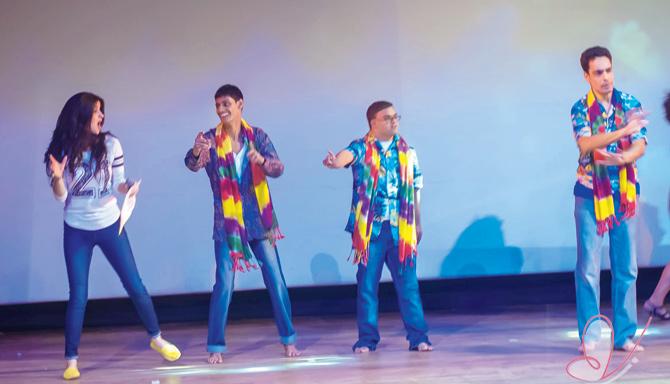Down syndrome is a genetic disorder. In the past, annually, there were 1 in 800 cases of it in the city, now reduced to 1 in 1,000.

A performance from last year's World Down Syndrome Day event

A performance from last year's World Down Syndrome Day event
ADVERTISEMENT
They may struggle with simple tasks in their daily lives, but on World Down Syndrome Day today, 30 children and young adults are determined to show what they can achieve, despite being affected by the disorder.
They will perform at the YB Chavan auditorium to send a strong message to those who think less of them. Parents and doctors will also discuss the issue and how the lives of those affected can be bettered by involving city's corporates.
Down syndrome is a genetic disorder. In the past, annually, there were 1 in 800 cases of it in the city, now reduced to 1 in a 1,000.
Improved diagnostics
Medical practitioner Ashok Khanvate, a motivational speaker for the affected, said the reason for the reduced cases is that diagnostics have improved now. "Research and development in this field has improved, which is also behind lesser cases," he added.
Gopal Sehjpal, parent of a Down syndrome-afflicted child and member of the NGO Parents of Down Syndrome Association, which is organising the event, said, "No matter how much these children achieve, society is not as sensitive as it should be. Through interactions, we are trying to include those afflicted in mainstream work places."
Inclusion in society
Ways of including this section of society into the mainstream, by means of employment or sheer sensitivity, will also be discussed at a seminar after the performances.
Special Olympics gold medallist Rishi Shahani will be present at the event. His mother Aruna said, "We are not looking for sympathy. Enough of looking down on them. They have time and again proved that they are incredible. People must see that and change their perspective."
"Corporate Social Responsibility teams do a lot, but nothing concrete happens in society. We also hope to make policy-level changes for these children," said Sehjpal.
While policy-level changes may be a long way to go, psychologist Anjali Chhabria feels that people need to know that they have to be sensitive to these children.
"These kids are mentally challenged, not mentally sick. People need to understand the difference between the two. If you are sensitive to them, they too are. In my experience, children with Down syndrome are the most loving and caring people," she added.
 Subscribe today by clicking the link and stay updated with the latest news!" Click here!
Subscribe today by clicking the link and stay updated with the latest news!" Click here!







